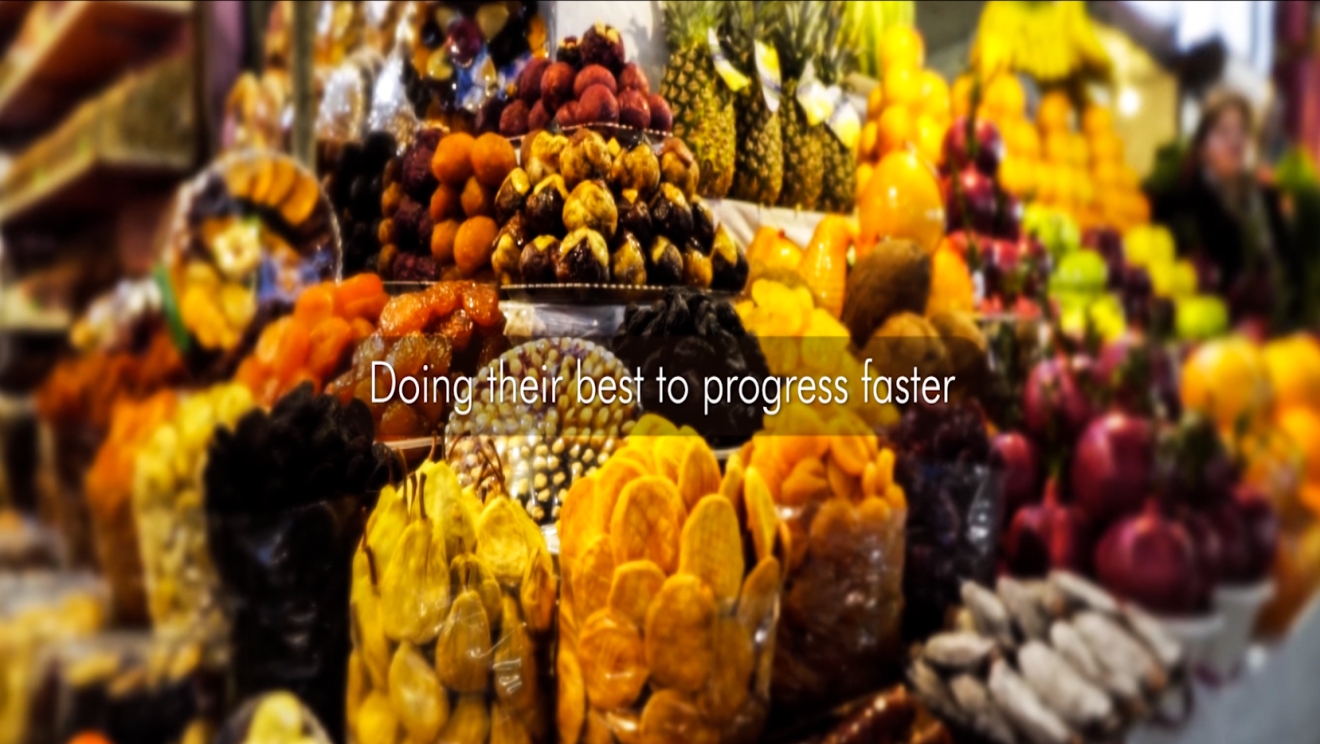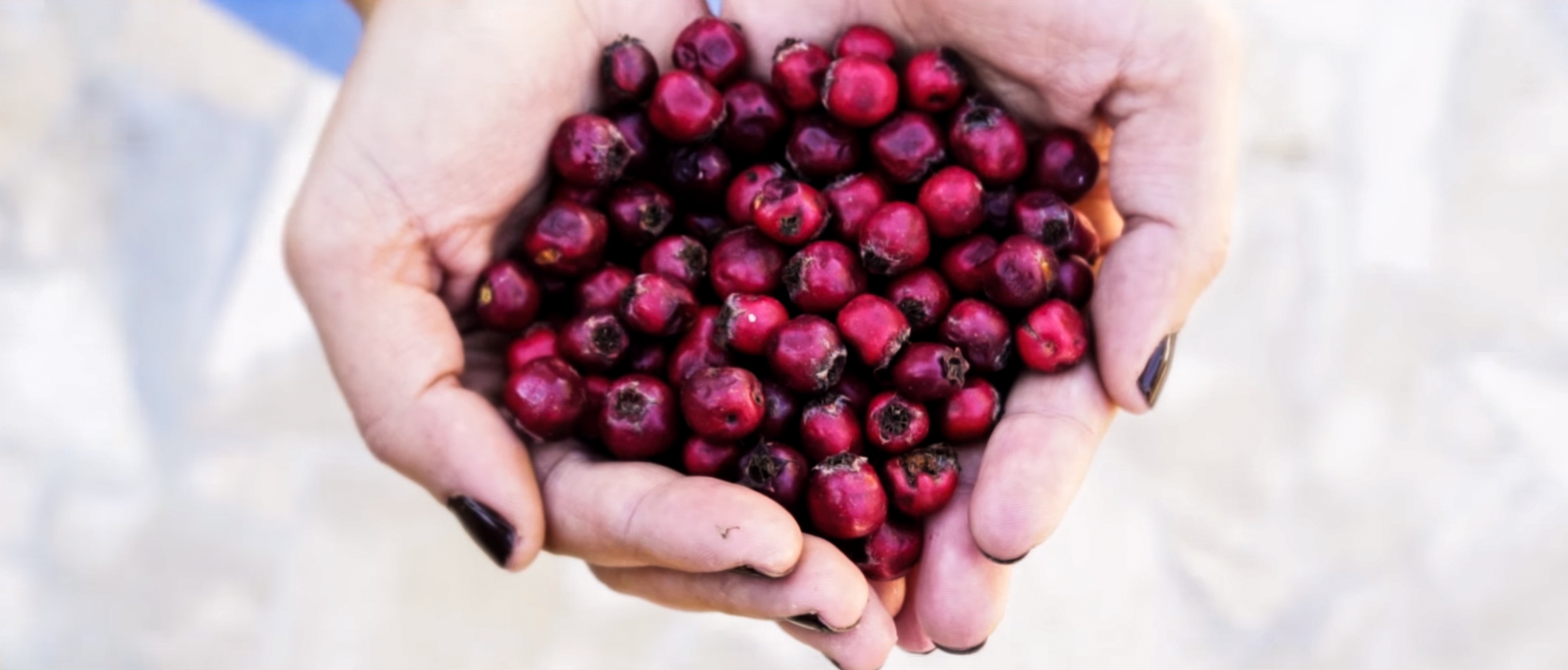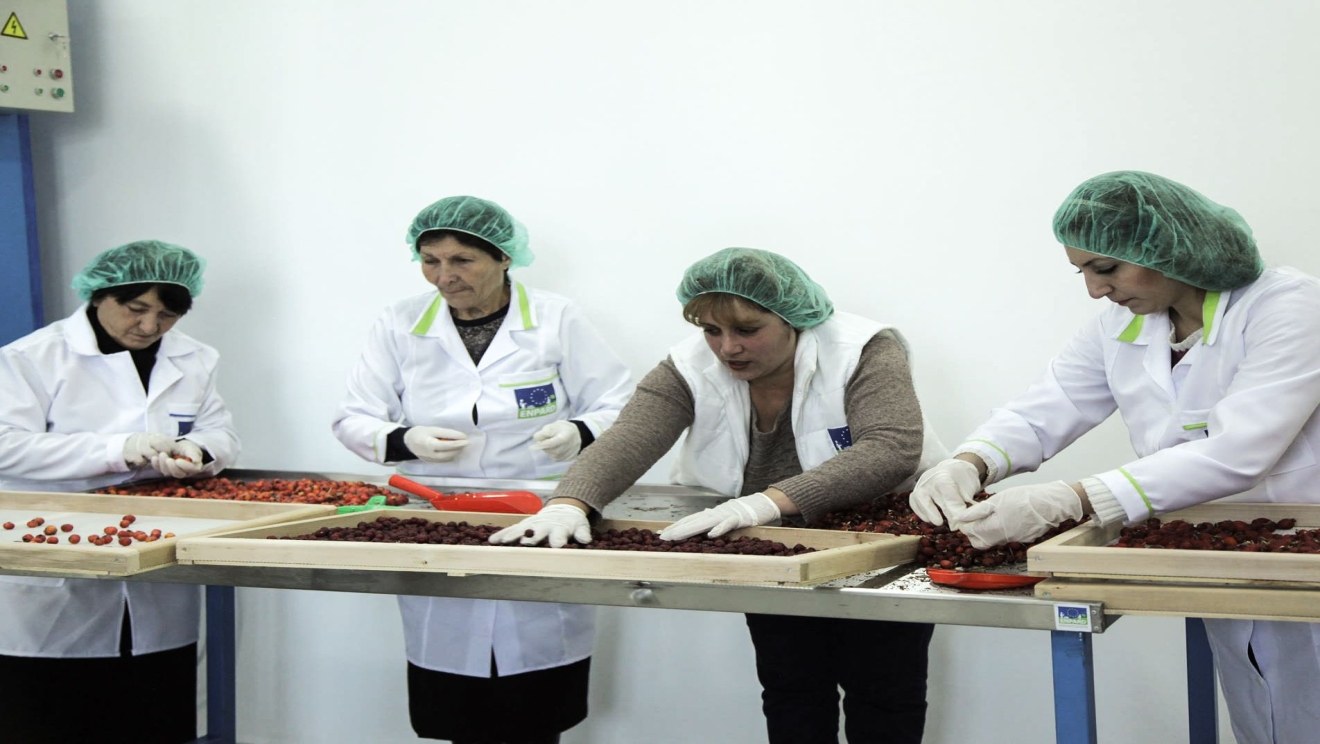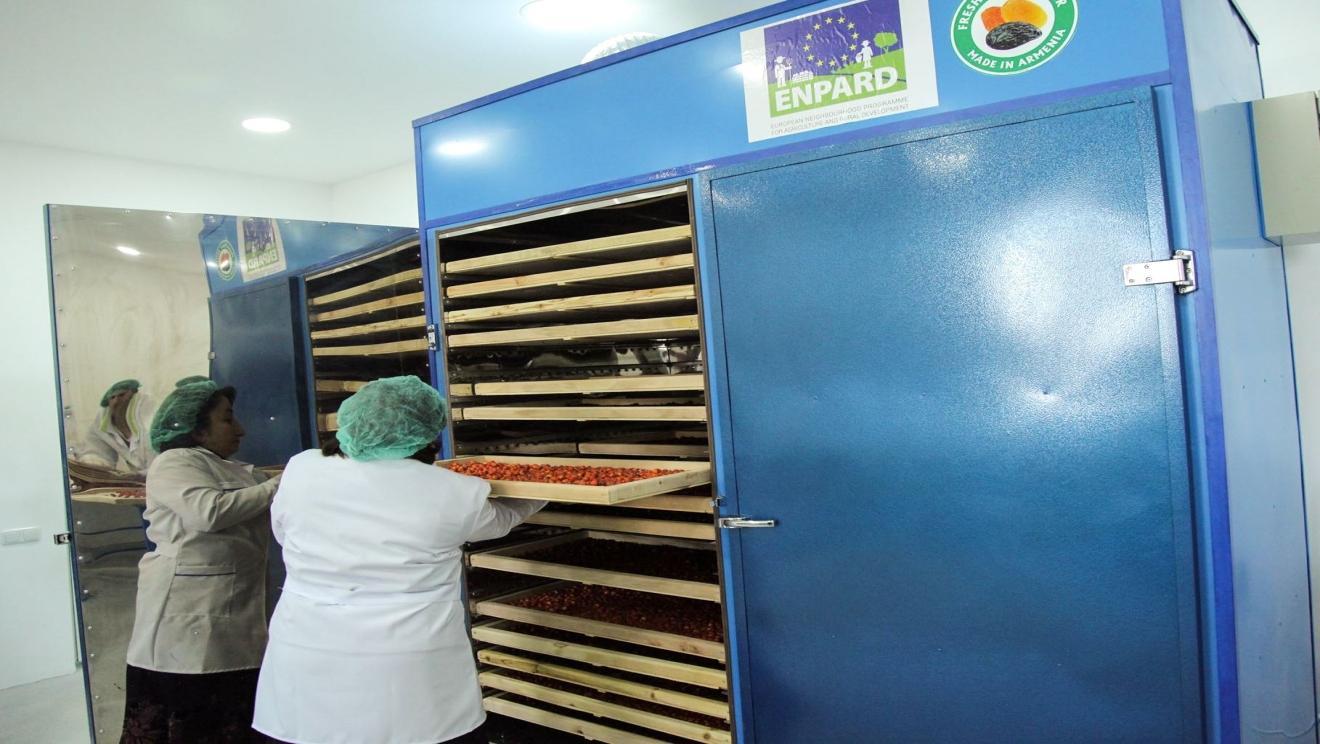

Improving the quality of rural products in Armenia
27 November 2017 Danilo De Oliveira Pereira

In the old days, if you walked into an Armenian house during New Year, you might find dried fruits hanging from the ceiling. That is how Navasard – the ancient Armenian New Year and the country’s favourite pre-Christian holiday – used to be celebrated. The holiday cleberates an event over 4,500 years ago marking the dawn of the Armenian Republic and the hanging dried fruits were used as decoration symbolizing fertility. Today, portions of the treats cover tables during traditional Armenian celebrations.
It is clear that dried fruits play an important role in Armenian tradition, but their significance to the country’s economy is far from what it could be. Only 0.4% of Armenian fruit production is dried and sold. Every year, the country ends up importing 1035 tonnes of the product and exporting only 188 tonnes.
“It is in their tradition and the world knows there is very good dried fruit coming from Armenia, but the country is not very competitive at producing and selling those products,” says Frank Hartwich, a UNIDO Industrial Development Officer.

With a tradition of drying fruit that goes back thousands of years, there is clear potential for the country to increase its production, become self-sufficient and increase exports. But in order to achieve that, farmers must change the way in which they are producing, processing and marketing the popular treat.
The traditional way of drying fruit is to simply do it at home. After the harvest, ripe pears, apples, peaches and plums are placed outside and left to dry under the sun. That process is not good enough for today’s standards. Placing the fruits outside exposes them to insects, dust and rain, conditions which jeopardize their quality. The result is a product which is not very competitive and ends up being sold without any documentation, label or proper packaging.
“We have always had difficulties with cleaning and drying the fruit”, said Tsovik Ahanyan, head of “Byur-Akn”, a local agricultural cooperative. “The weather conditions aren’t always favourable. For example, we put the fruit out and it might be sunny today, but rain tomorrow,” added Kamo Kamsaryan, a member of the same cooperative.
The Project on Producer Group and Value Chain Development of the European Neighbourhood Programme for Agriculture and Rural Development (ENPARD) is a project designed to support the Government of Armenia to implement efficient and sustainable agricultural and value addition strategies and overcome challenges such as this.
Through this initiative, UNIDO partnered up with another two UN organizations, UNDP and FAO, as well as with the European Union. Together, the organizations worked closely with the Ministry of Agriculture of Armenia in order to encourage the development of farmers’ associations and improve access to more affordable food. They helped households establish producer groups and then assisted them improve their productive activities and become more competitive.
ENPARD assisted around 30 farmer-groups in the country, 40 percent of them led by women.
“EMPARD gave us huge assistance by providing us with an electric dryer for one tonne of fresh fruit, sinks, packaging equipment, tables and sieves”, Tsovik said.
The project trained members of the cooperatives in the skills necessary for the commercial success. They took classes in agronomic practices, business planning, administration and organization, budgeting and financial management, marketing and food safety. The training gave farmers the knowledge they need to adapt and manage their production more efficiently. The project also provided seeds (only in the first year) and provided subsidies to the purchase and setting up of appropriate processing facilities that ensure production of quality value-added prodcuts.
“If you have a good team, working efficiently and on time, you will have good results,” Tsovik added.


Food-drying units were established in all locations and supplied with equipment that lives up to international standards. Now, the fresh fruit is no longer left to dry under the sun and then returned to the production unit. The whole production cycle is done in one place.
The people assisted by the project are now able to adapt their production of dried fruit to modern market standards. With the changes, a traditional practice becomes a way to make a living, increase income and improve living conditions.
With UNIDO’s assistance, the cooperatives developed connections with two supermarket chains. In 2017, they sold 5 tons of dried fruit and made over 7,000 euros.
And this is just one example of ENPARD’s positive impact. The project also introduced the large-scale cultivation of buckwheat in Armenia, something unprecedented in the country. With two factories were established, farmers were able to properly process and package the product.
Six cooperatives in cheese production were also launched.
The sales revenue of the 14 companies benefited surpassed half a million euros in the first year of operation.